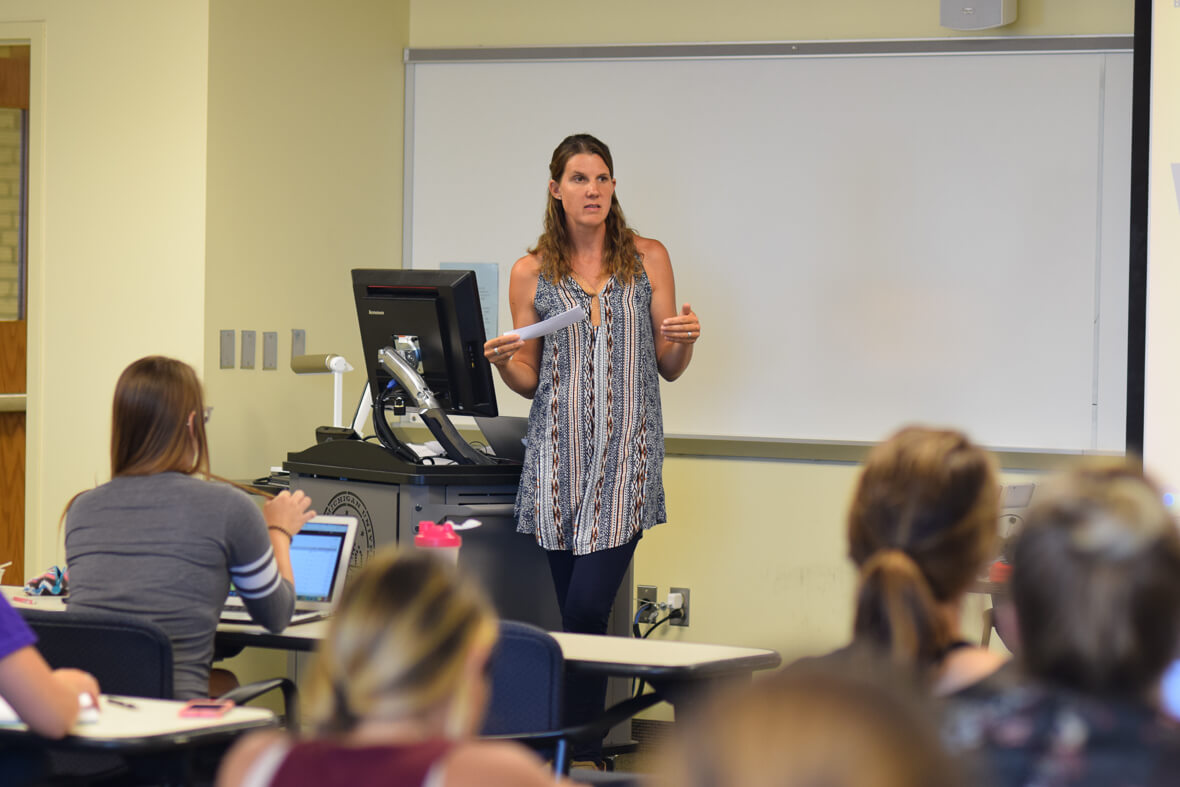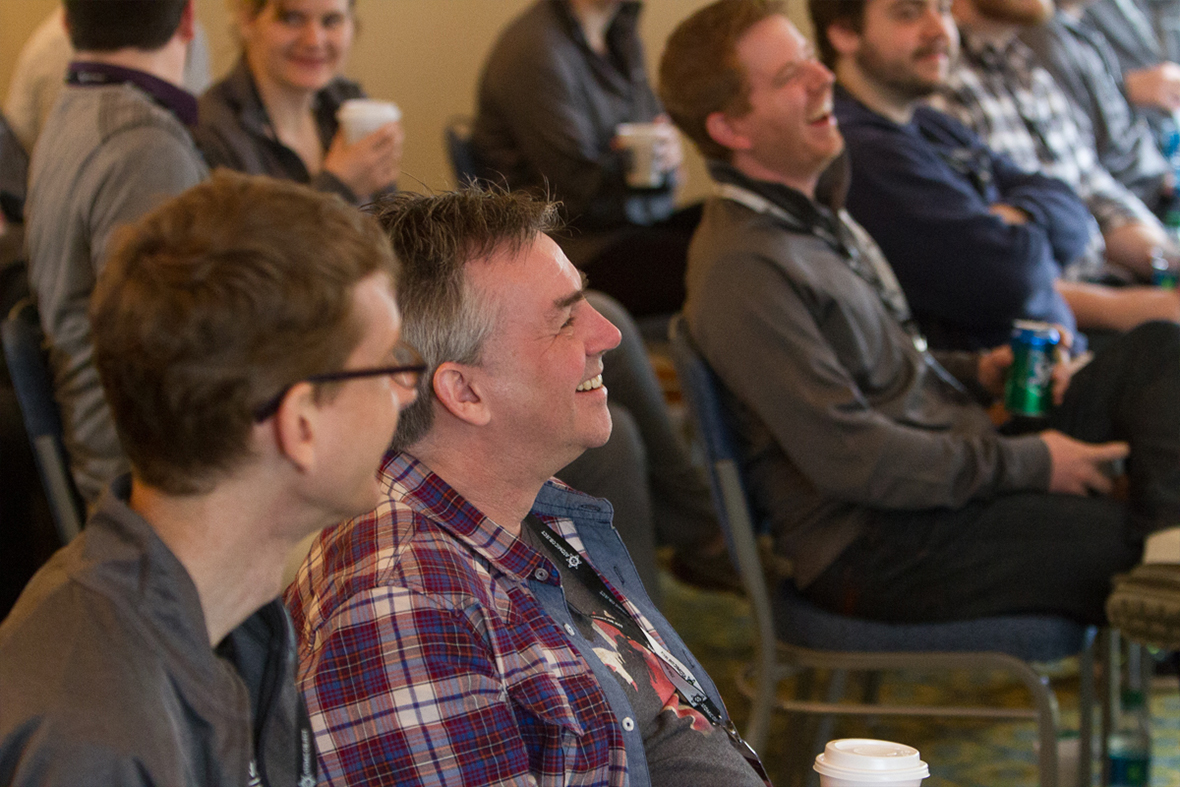Conferences are for learning. But if you go with colleagues, they can also be a great way to build relationships and learn from each other. I’d call this a “group conference”—when three people who know each other attend a conference and plan to spend time together while they’re there.
I was thinking about this a few weeks ago, when more than 25 Atoms attended the 2018 Strange Loop Conference (which we highly recommend). I’ve participated in many group conferences during my time at Atomic. Here are a few ways to make the most of them.
Stay Together
Book hotel rooms as a block in the same hotel—ideally, a recommended conference hotel (so you can get the discount). This ensures that all of you will have the same “home base,” which makes planning group activities much easier.
Stay in Touch
I highly recommend using Slack (or a similar tool) to create a channel for attendees to communicate plans. There are many benefits to this:
- It moves potentially annoying conference chatter out of general channels.
- It creates a searchable artifact for attendees. Nothing gets lost in private message threads.
- It makes coordinating social activities and talk/workshop attendance easier.
Modern tech-related conferences almost always have their own Slack Team setup, and I recommend attendees join that as well to take advantage of it.
Share Talk Recommendations
I’ve led groups to several conferences and experimented with a few different approaches to attending talks:
- No structure. Everyone attends whichever talks they want.
- Discuss talks as a group and agree on which talks the group should attend.
- Have a few senior folks share a list of talks they think will be interesting and plan on attending.
Option 1 was the most common. This allows people to attend the talks that most interest them without worrying about coordination. Naturally, ad-hoc friend groups will emerge and attend things together, but nothing is planned formally. At the end of each day, there is usually a conversation about which talks or workshops everyone liked best. While this approach is fine, it can represent a missed opportunity for your organization in terms of team-building and camaraderie.

I’ve also tried Option 2 by getting the group together ahead of time and discussing the schedule. Everyone’s opinion is heard, and there may be disagreements. But in the end, we all commit to attend the same talks. My experience with this approach was that the upfront conversation was great, but feeling responsible to stick together throughout the whole event was tiring (people took less rest), caused the group as a whole to see less content, and felt a little smothering. I don’t recommend this.
I feel that Option 3 is a happy medium. In my case, we created a shared Google doc for all attendees and asked some of our key senior developers to recommend talks they planned to attend (with the understanding that it was cool if people chose to see something else). I liked this approach because it gave our younger folks a set of recommendations and also radiated ideas about who to search out if something caught their eye. For group conferences in the future, I expect we’ll continue with some version of Option 3.
Be Generous with Your Network
If you have friends outside of your group who are attending the conference, either:
- Plan on introducing your group to them and sharing those valuable connections. Or…
- Don’t invite a group from your org.
This “networking generosity” is important to growing your organization’s connections within the community, and it improves your org’s ROI.
I’ve seen the opposite situation a few times: Someone is excited about the conference, invites a bunch of co-workers, then disappears with their conference buddies (ditching co-workers) during the conference. This is a missed opportunity to share connections, and it’s a bummer for co-workers who were probably excited to spend time with you. Consider how you would like to be treated in this situation, and be empathetic.

Make the Most of Meals, Socializing, and Mornings
A few disorganized thoughts about group conference socializing:
-
- Try to save money (or not spend any) on breakfast and lunch. Plan a big dinner with the group, and find a great local restaurant to make it a memorable experience. The extra effort to get everyone together at least once is worth it.
- Early morning exercise is a great way to stay energized and feel healthy while traveling to a conference. I’ve had luck organizing early morning runs on Slack. It gives me a cool opportunity to meet new people, reminds me to not overdo things in the evening, and helps me feel better in general. This could also work as a mid-day walk.
- Don’t drink too much. A morning hangover can be a conference-ruiner.
- Find a conference that’s held and integrated into a city. I vastly prefer walkable, downtown conferences to those held at big convention centers or resorts.
Get Enough Rest
Finally, I always let younger co-workers know that it is okay to take a track off to go back to the hotel and rest, take a walk, get some exercise, or do whatever else they need to do to stay energized. Attending eight or more straight hours of talks can be a lot for even the most social of us.
I find that attending conferences as a group is much more enjoyable than going solo. It almost always generates funny stories and deeper social connections with my friends within Atomic. While networking and technical learning is certainly valuable, I believe team building and forming of social bonds is the biggest ROI for organizations that support conference attendance (like Atomic!).

